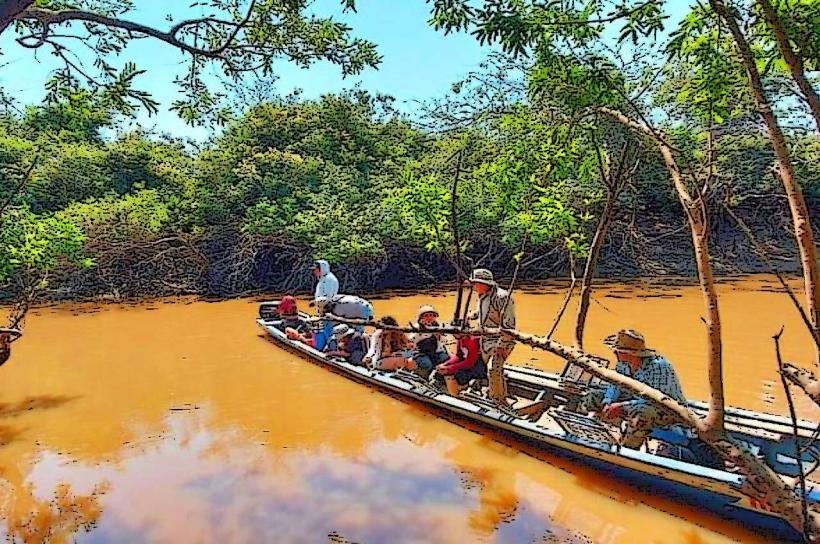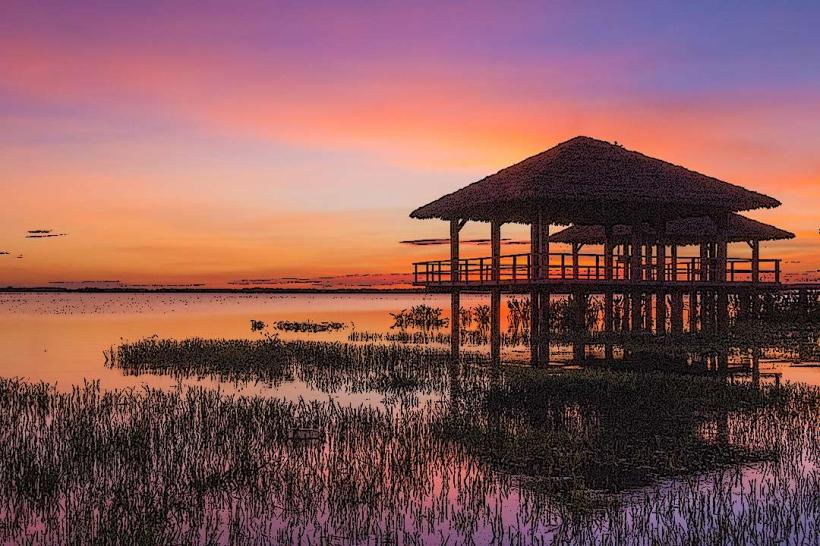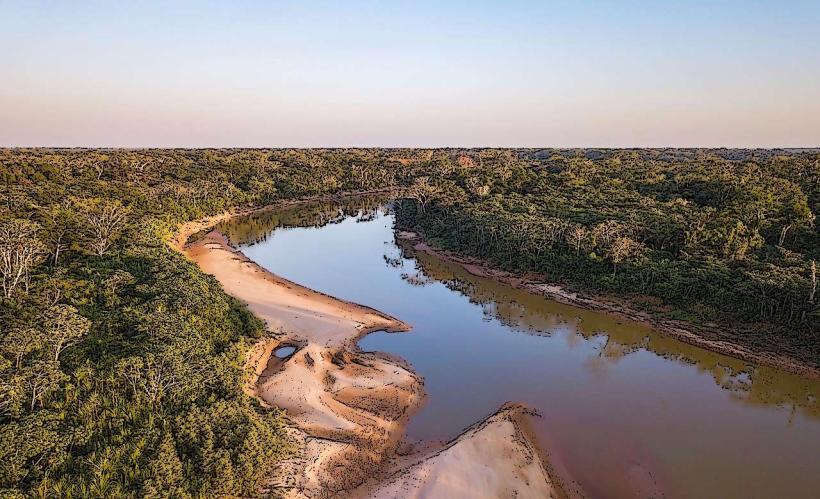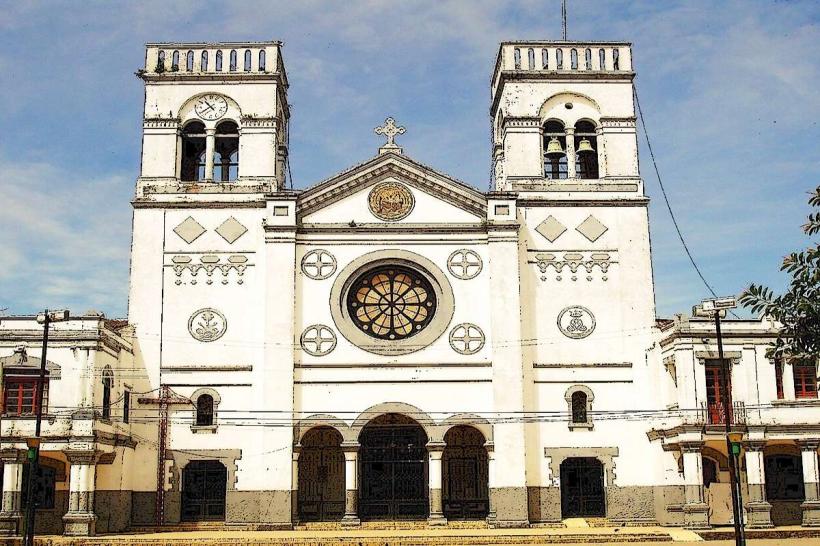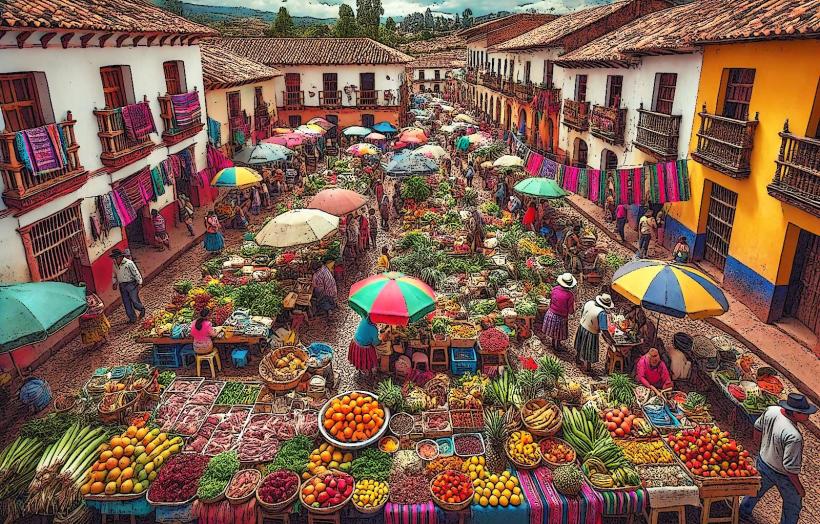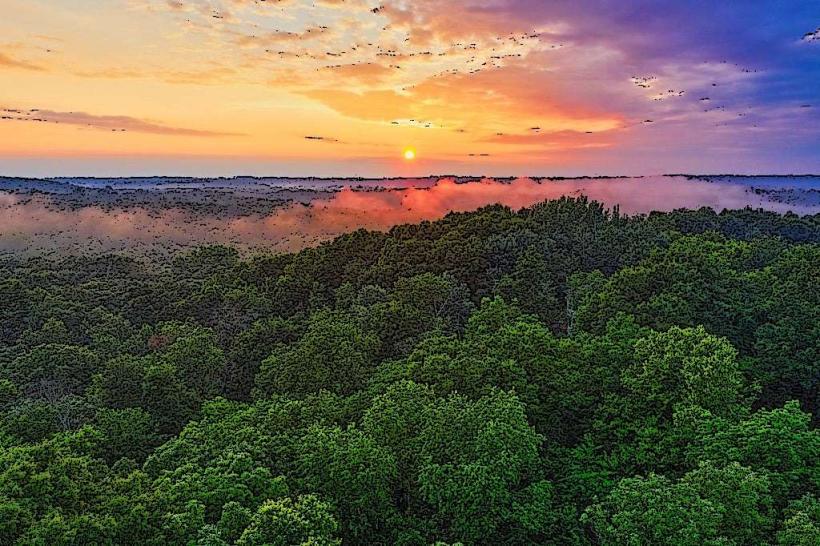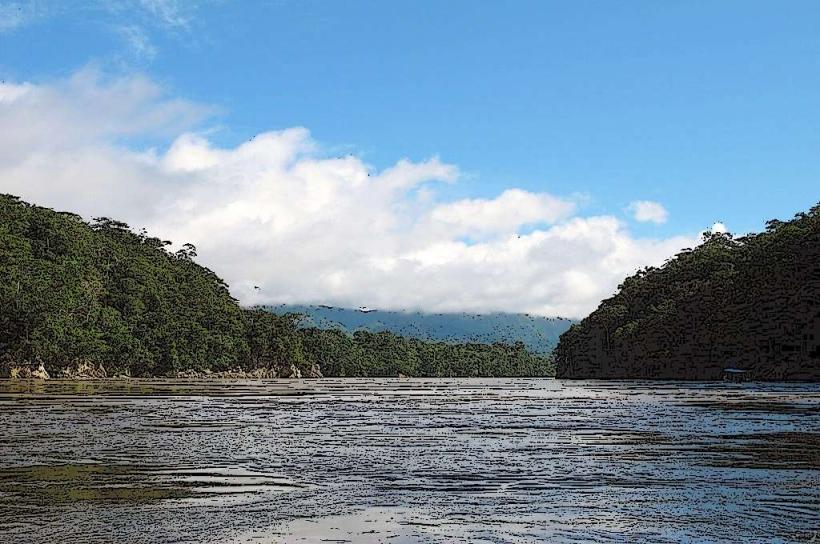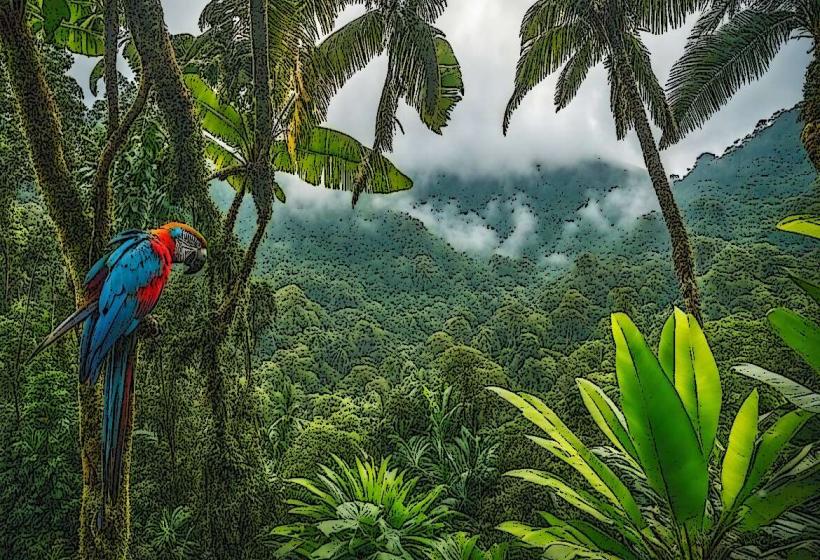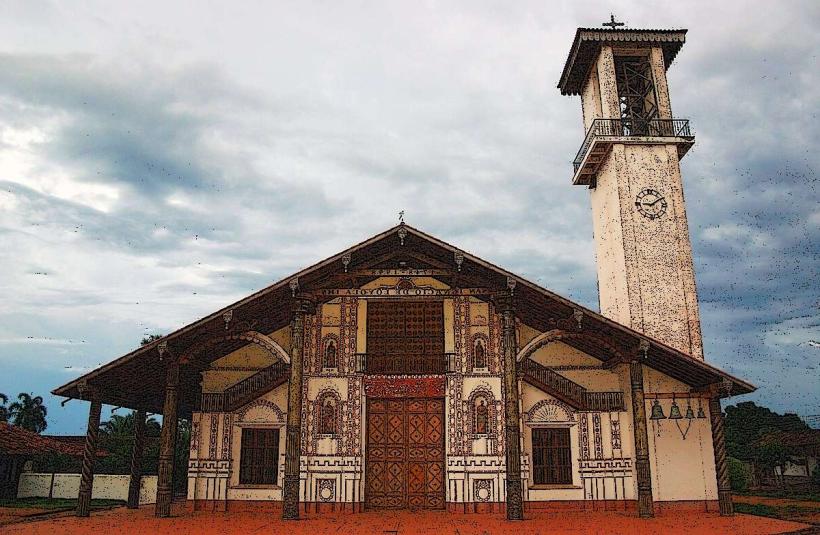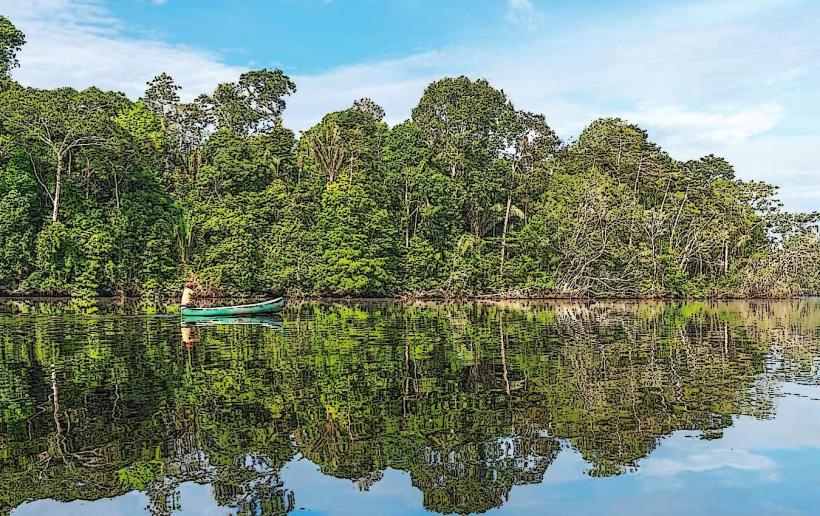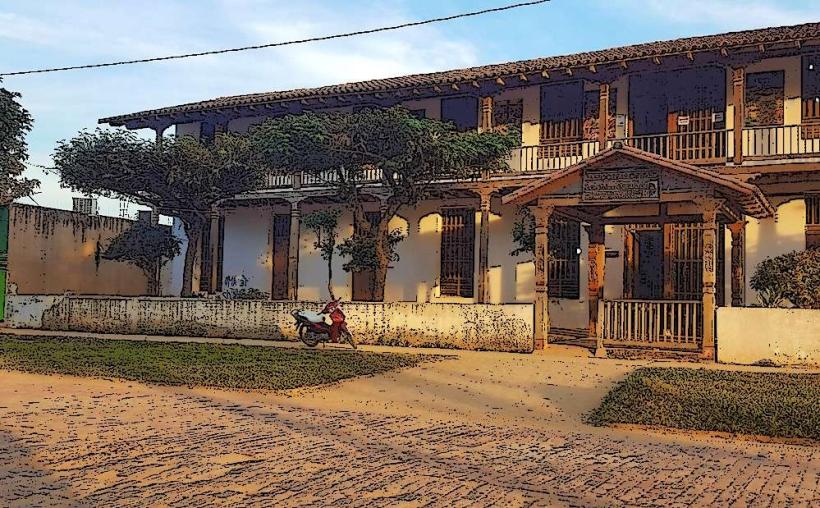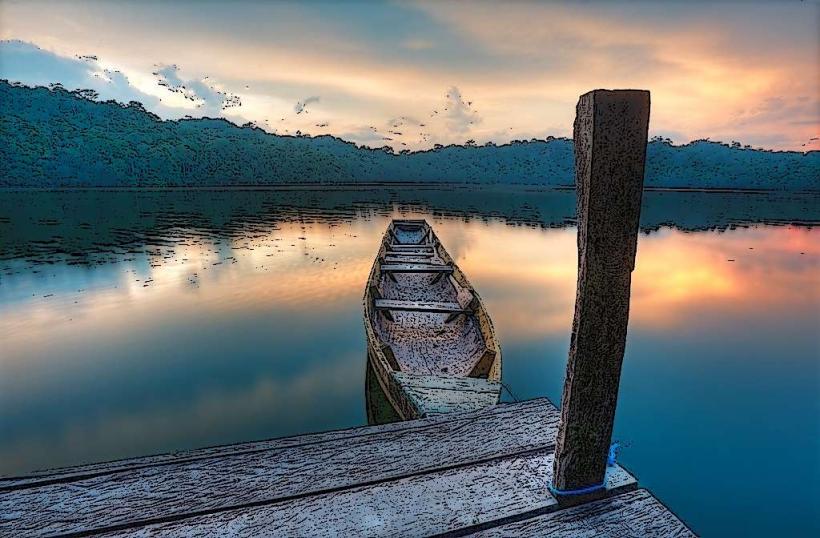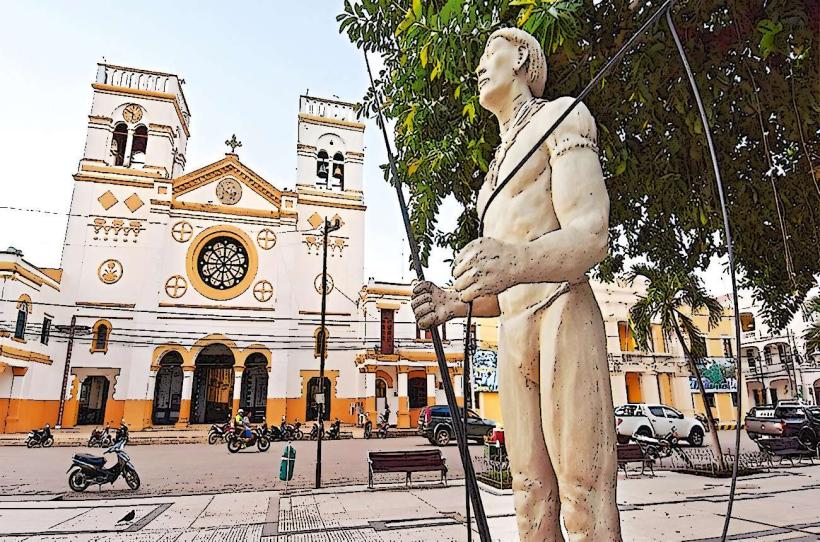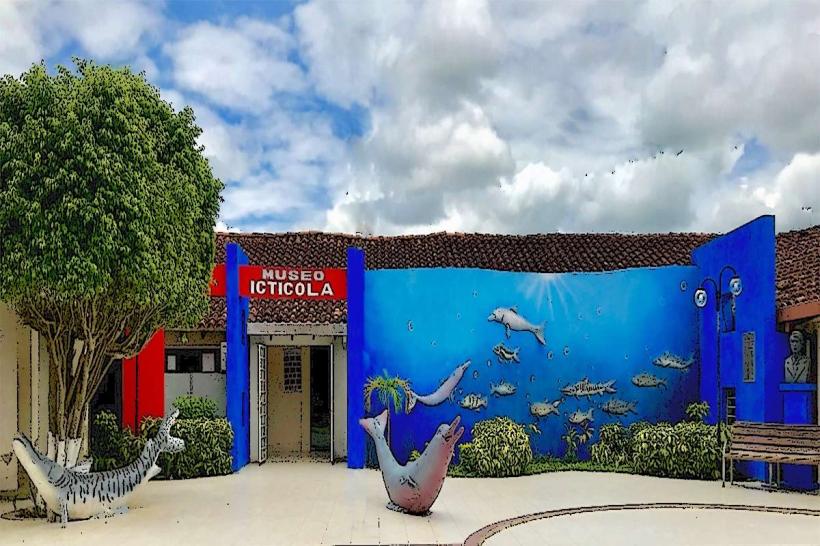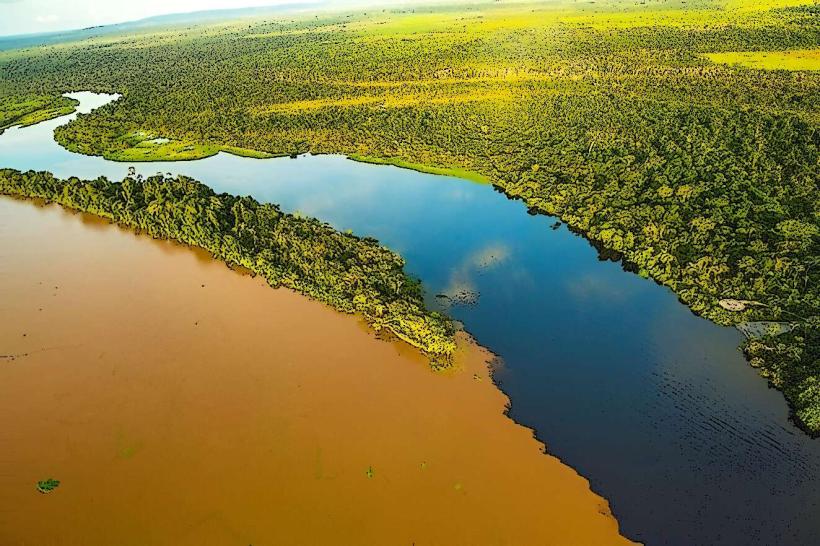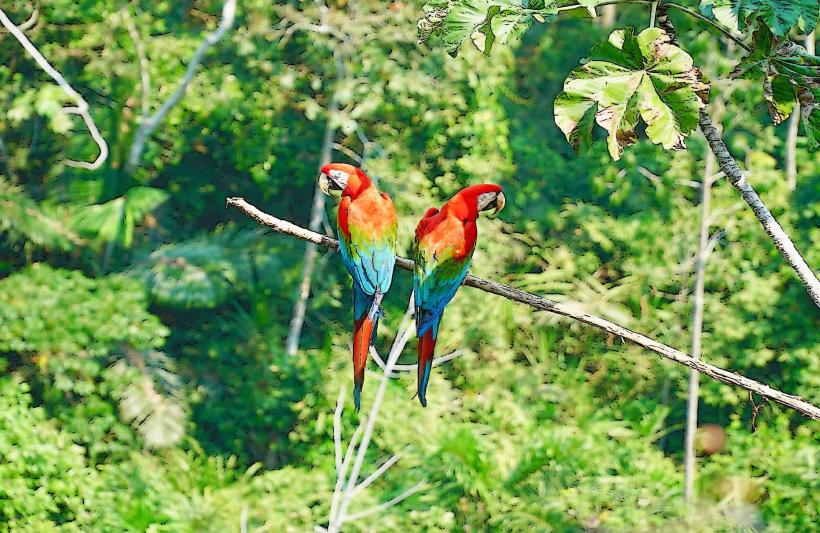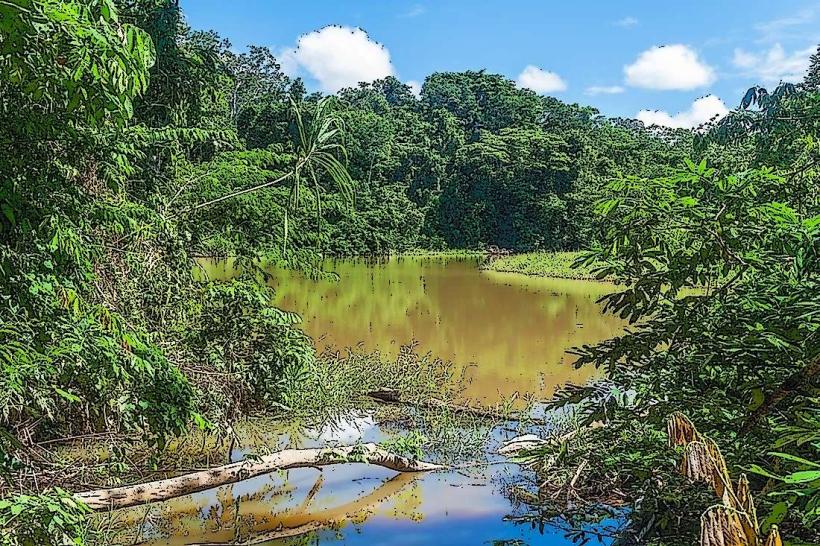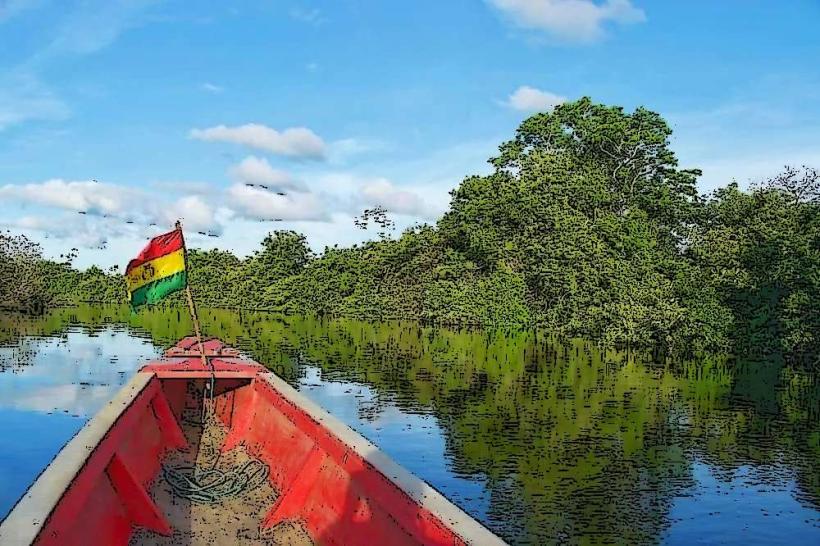Information
Landmark: Isla de los MoseténCity: Beni
Country: Bolivia
Continent: South America
Isla de los Mosetén, Beni, Bolivia, South America
Isla de los Mosetén is an island located within the Beni River basin in the Beni Department of Bolivia.
This island is a significant ecological zone characterized by its unique flora and fauna adapted to the Amazonian floodplain environment.
Visual Characteristics
The island is primarily composed of dense Amazonian rainforest vegetation. Dominant tree species include various palms, kapok trees, and mahogany. The terrain is generally flat with some low-lying areas prone to seasonal flooding. The surrounding water is typically a muddy brown, characteristic of the Beni River system.
Location & Access Logistics
Isla de los Mosetén is situated approximately 15 kilometers southwest of the city of Trinidad, Beni. Access is exclusively via river transport. Local boat operators in Trinidad offer services to the island, with journey times averaging 45 minutes to 1 hour depending on river conditions. There is no dedicated parking on the island itself; vehicles remain in Trinidad. Public transport to Trinidad is available via bus or air.
Historical & Ecological Origin
The island's formation is a result of alluvial deposition from the Beni River over millennia, creating a raised landmass within the floodplain. Ecologically, it represents a transition zone between terra firme forest and seasonally flooded forests, supporting a high level of biodiversity. Historically, indigenous communities have utilized the island's resources for centuries.
Key Highlights & Activities
Activities include guided nature walks through the forest trails to observe wildlife such as monkeys, birds, and reptiles. Boat tours around the island's perimeter offer opportunities to view aquatic life and the island's vegetation from the water. Birdwatching is a primary activity due to the diverse avian population.
Infrastructure & Amenities
Basic infrastructure is limited. There are no permanent restroom facilities or designated shade structures on the island. Cell phone signal is unreliable and generally absent. Food vendors are not present on Isla de los Mosetén; visitors must bring their own provisions. Some local guides may offer rudimentary shelters.
Best Time to Visit
The dry season, from June to October, is generally preferred for easier access and reduced insect activity. The best time of day for wildlife observation is typically early morning (6:00 AM - 9:00 AM) and late afternoon (4:00 PM - 6:00 PM) when animals are most active. High tide is not a specific requirement for access, but river levels can affect boat travel times.
Facts & Legends
A local legend suggests that the island is home to a guardian spirit that protects its unique ecosystem. Scientifically, Isla de los Mosetén is recognized for its high concentration of medicinal plant species, utilized by indigenous communities for generations.
Nearby Landmarks
- Trinidad Cathedral: 15km Northeast
- Museo de Arte Sacro: 15km Northeast
- Plaza General José Ballivián: 15km Northeast
- Parque Nacional y Territorio Indígena Isiboro Sécure: Approximately 50km Southwest (access via longer river journey)

